- Home
- Daphne Du Maurier
The Apple Tree: a short novel & several long stories Page 7
The Apple Tree: a short novel & several long stories Read online
Page 7
As the moon rose, the man that climbed with it shrank to insignificance. I was no longer aware of personal identity. This shell, in which I had my being, moved forward without feeling, drawn to the summit of the mountain by some nameless force which seemed to hold suction from the moon itself I was impelled, like the flow and ebb of tide upon water. I could not disobey the law that urged me on, any more than I could cease to breathe. This was not mountain fever in my blood, but mountain magic. It was not nervous energy that drove me, but the tug of the full moon.
The rock narrowed and closed above my head, making an arch, a gully, so that I had to stoop and feel my way; then I emerged from darkness into light, and there before me, silver white, were the twin peaks and the rock face of Monte Verità.
For the first time in my life I looked on beauty bare. My mission was forgotten, my anxiety for Victor, my own fear of cloud that had clamped me through the day. This indeed was journey's end. This was fulfilment. Time did not matter. I had no thought of it. I stood there staring at the rock-face under the moon.
How long I remained motionless I do not know, nor do I remember when the change came to the tower and the walls; but suddenly the figures were there, that had not been before. They stood one behind the other on the walls, silhouetted against the sky, and they might have been stone images, carved from the rock itself, so still they were, so motionless.
I was too distant from them to see their faces or their shape. One stood alone, within the open tower; this one alone was shrouded, in a garment reaching from head to foot. Suddenly there came to my mind old tales of ancient days, of Druids, of slaughter, and of sacrifice. These people worshipped the moon, and the moon was full. Some victim was going to be flung to the depths below, and I would witness the act.
I had known fear in my life before, but never terror. Now it came upon me in full measure. I knelt down, in the shadow of the gully, for surely they must see me standing there, in the moon's path. I saw them raise their arms above their heads, and slowly a murmur came from them, low and indistinct at first, then swelling louder, breaking upon the silence that hitherto had been profound. The sound echoed from the rock-face, rose and fell upon the air, and I saw them one and all turn to the full moon. There was no sacrifice. No act of slaughter. This was their song of praise.
I hid there, in the shadows, with all the ignorance and shame of one who stumbles into a place of worship alien to his knowledge, while the chanting rang in my ears, unearthly, terrifying, yet beautiful in a way impossible to bear. I clasped my hands over my head, I shut my eyes, I bent low until my forehead touched the ground.
Then slowly, very slowly, the great hymn of praise faded in strength. It sank lower to a murmur, to a sigh. It hushed and died away. Silence came back to Monte Verità.
Still I dared not move. My hands covered my head. My face was to the ground. I am not ashamed of my terror. I was lost between two worlds. My own was gone, and I was not of theirs. I longed for the sanctuary of the drifting clouds again.
I waited, still upon my knees. Then furtive, creeping, I lifted up my head and looked towards the rock-face. The walls and the tower were bare. The figures had vanished. And a cloud, dark and ragged, hid the moon.
I stood up, but I did not move. I kept my eyes fixed upon the tower and the walls. Nothing stirred, now that the moon was masked. They might never have been, the figures and the chanting. Perhaps my own fear and imagination had created them.
I waited until the cloud that hid the moon's face passed away. Then I took courage and felt for the letters in my pocket. I do not know what Victor had written, but my own ran thus:
Dear Anna,
Some strange providence brought me to the village on Monte Verità. I found Victor there. He is desperately ill, and I think dying. If you have a message to send him, leave it beneath the wall. I will carry it to him. I must warn you also that I believe your community to be in danger. The people from the valley are frightened and angry because one of their women has disappeared. They are likely to come to Monte Verità, and do damage.
In parting, I want to tell you that Victor has never stopped loving you and thinking about you.
And I signed my name at the bottom of the page.
I started walking towards the wall. As I drew close I could see the slit windows, described to me long ago by Victor, and it came to me that there might be eyes behind them, watching, that beyond each narrow opening there could be a figure, waiting.
I stooped and put the letters on the ground beneath the wall. As I did so, the wall before me swung back suddenly and opened. Arms stretched forth from the yawning gap and seized me, and I was flung to the ground, with hands about my throat. The last thing I heard, before losing consciousness, was the sound of a boy, laughing.
I awoke with violence, jerked back into reality from some great depth of slumber, and I knew that a moment before I had not been alone. Someone had been beside me, kneeling, peering down into my sleeping face.
I sat up and looked about me, cold and numb. I was in a cell about ten foot long, and the daylight, ghostly pale, filtered through the narrow slit in the stone wall. I glanced at my watch. The hands pointed to a quarter to five. I must have lain unconscious for a little over four hours, and this was the false light that comes before dawn.
My first feeling now, on waking, was one of anger. I had been fooled. The people in the village below Monte Verità had lied to me, and to Victor too. The rough hands that had seized me, and the boy's laugh that I heard, these had belonged to the villagers themselves. That man, and his son, had preceded me up the mountain track, and had lain in wait for me. They knew a way of entry through the walls. They had fooled Victor through the years, and thought to fool me too. God alone knew their motive. It could not be robbery. We neither of us had anything but the clothes we wore. This cell into which they had thrust me was quite bare. No sign of human habitation, not even a board on which to lie. A strange thing, though — they had not bound me. And there was no door to the cell. The entry was open, a long slit, like the window, but large enough to permit the passage of a single form.
I sat waiting for the light to strengthen and for the feeling, too, to come back to my shoulders, arms and legs. My sense of caution told me this was wise. If I ventured through the opening now, I might in the dim light stumble, and fall, and be lost in some labyrinth of passage-way or stair.
My anger grew with the daylight, yet with it also a feeling of despair. I longed more than anything to get hold of the fellow and his son, threaten them both, fight them if necessary — I would not be thrown to the ground a second time unawares. But what if they had gone away and left me in this place, without means of exit? Supposing this, then, was the trick they played on strangers, and had done so through countless years, the old man before them, and others before him, luring the women from the valley too, and once inside these walls leaving the victims to starvation and death? The uneasiness mounting in me would turn to panic if I thought too far ahead, and to calm myself I felt in my pocket for my cigarette case. The first few puffs steadied me, the smell and the taste of the smoke belonged to the world I knew.
Then I saw the frescoes. The growing light betrayed them to me. They covered the walls of the cell, and were drawn upon the ceiling too. Not the rough primitive efforts of uncultured peasants, nor yet the saintly scrawling of religious artists, deeply moved by faith. These frescoes had life and vigour, colour and intensity, and whether they told a story or not I did not know, but the motif was clearly worship of the moon. Some figures knelt, others stood; one and all had their arms up, raised to the full moon traced upon the ceiling. Yet in some strange fashion the eyes of the worshippers, drawn with uncanny skill, looked down upon me, not upwards to the moon. I smoked my cigarette and looked away, but all the time I felt their eyes fasten on me, as the daylight grew, and it was like being back outside the walls again, aware of silent watchers from behind the slit windows.
I got up, stamping on my cigarette, and it se
emed to me that anything would be better than to remain there in the cell, alone with those figures on the painted walls. I moved to the opening, and as I did so I heard the laughter once again. Softer this time, as though subdued, but mocking and youthful still. That damned boy…
I plunged through the opening, cursing him and shouting. He might have a knife upon him but I didn't care. And there he was, fiattened against the wall, waiting for me. I could see the gleam of his eyes, and I saw his close-cropped hair. I struck at his face, and missed. I heard him laughing as he slipped to one side. Then he wasn't alone any more; there was another just behind, and a third. They threw themselves upon me and I was borne to the ground as though I had no strength at all, and the first one knelt with his knee on my chest and his hands about my throat, and he was smiling at me.
I lay fighting for breath, and he relaxed his grip, and the three of them watched me, with that same mocking smile upon their lips. I saw then that none of them was the boy from the village, nor was the father there, and they did not have the faces of village people or of the valley people: their faces were like the painted frescoes on the wall.
Their eyes were heavy-lidded, slanting, without mercy, like the eyes I had seen once long ago on an Egyptian tomb, and on a vase long hidden and forgotten under the dust and rubble of a buried city. Each wore a tunic to his knees, with bare arms, bare legs and hair cropped close to the head, and there was a strange austere beauty about them, and a devilish grace as well. I tried to raise myself from the ground, but the one who had his hand upon my throat pressed me back, and I knew I was no match for him or his companions, and if they wanted to they could throw me from the walls down to the depths below Monte Verità. This was the end, then. It was only a matter of time, and Victor would die alone, back in the hut on the mountain-side.
"Go ahead," I said, "have done with it," resigned, caring no longer. I expected the laughter again, mocking and youthful, and the sudden seizing of my body with their hands, and the savage thrusting of me through the slit window to darkness and to death. I closed my eyes, and with nerves taut braced myself for horror. Nothing happened. I felt the boy touch my lips. I opened my eyes and he was smiling still, and he had a cup in his hands, with milk in it, and he was urging me to drink, but he did not speak. I shook my head but his companions came and knelt behind me, supporting my shoulders and my back, and I began to drink, foolishly, gratefully, like a child. The fear went as they held me, and the horror too, and it was as though strength passed from their hands to mine, and not only to my hands but to the whole of me.
When I had finished drinking the first one took the cup from me and put it on the ground, then he placed his two hands on my heart, his lingers touching, and the feeling that came to me was something I had never experienced in my life before. It was as if the peace of God came upon me, quiet and strong, and, with the touch of hands, took from me all anxiety and fear, all the fatigue and terror of the preceding night; and my memory of the cloud and mist on the mountain, and Victor dying on his lonely bed, became suddenly things of no importance. They shrank into insigniiicance beside this feeling of strength and beauty that I knew now. If Victor died it would not matter. His body would be a shell lying there in the peasant hut, but his heart would be beating here, as mine was beating, and his mind would come to us too.
I say "to us" because it seemed to me, sitting there in the narrow cell, that I had been accepted by my companions and made one of them. This, I thought to myself, still wondering but bewildered, happy, this is what I always hoped that death would be. The negation of all pain and all distress, and the centre of life flowing, not from the quibbling brain, but from the heart.
The boy took his hands from me, still smiling, but the feeling of strength, of power, was with me still. He rose to his feet and I did the same, and I followed him and the two others through the gap in the cell. There was no honeycomb of twisting corridors, no dark cloisters, but a great open court on to which the cells all gave, and the fourth side of the court led upwards to the twin peaks of Monte Verità, ice-capped, beautiful, caught now in the rose light of the rising sun. Steps cut in the ice led to the summit, and now I knew the reason for the silence within the walls and in the court as well, for there were the other ones, ranged upon the steps, dressed in those same tunics with bare arms and legs, girdles about the waist, and the hair cropped close to the head.
We passed through the court and up the steps beside them. There was no sound: they did not speak to me or to one another, but they smiled as the first three had done; and their smile was neither courteous nor tender, as we know it in the world, but had a strange exulting quality, as if wisdom and triumph and passion were all blended into one. They were ageless, they were sexless, they were neither male nor female, old or young, but the beauty of their faces, and of their bodies too, was more stirring and exciting than anything I had ever seen or known, and with a sudden longing I wanted to be one of them, to be dressed as they were dressed, to love as they must love, to laugh and worship and be silent.
I looked down at my coat and shirt, my climbing breeches, my thick socks and shoes, and suddenly I hated and despised them. They were like grave clothes covering the dead, and I flung them off, in haste to have them gone, throwing them over my shoulder down to the court below; and I stood naked under the sun. I was without embarrassment or shame. I was quite unconscious how I looked and I did not care. All I knew was that I wanted to have done with the trappings of the world, and my clothes seemed to symbolise the self I had once been.
We climbed the steps and reached the summit, and now the whole world lay before us, without mist or cloud, the lesser peaks stretching away into infinity, and far below, concerning us not at all, hazy and green and still, were the valleys and the streams and the little sleeping towns. Then, turning from the world below, I saw that the twin peaks of Monte Verità were divided by a great crevasse, narrow yet impassable, and standing on the summit, gazing downwards, I realised with wonder, and with awe as well, that my eyes could not penetrate the depths. The ice-blue walls of the crevasse descended smooth and hard without a break to some great bottomless chasm, hidden forever in the mountain heart. The sun that rose to bathe the peaks at midday would never touch the depths of that crevasse, nor would the rays of the full moon come to it, but it seemed to me, between the peaks, that the shape of it was like a chalice held between two hands.
Someone was standing there, dressed in white from head to foot, on the very brink of the chasm, and although I could not see her features, for the cowl of the white robe concealed them, the tall upright figure, with head thrown back and arms outstretched, caught at my heart with sudden tense excitement.
I knew it was Anna. I knew that no one else would stand in just that way. I forgot Victor, I forgot my mission, I forgot time and place and all the years between. I remembered only the stillness of her presence, the beauty of her face, and that quiet voice saying to me, "We are both in search of the same thing, after all." I knew then that I had loved her always, and that though she had met Victor first, and chosen him, and married him, the ties and ceremony of marriage concerned neither of us, and never had. Our minds had met and crossed and understood from the first moment when Victor introduced us in my club, and that queer, inexplicable bond of the heart breaking, through every barrier, every restraint, had kept us close to one another always, in spite of silence, absence and long years of separation.
The mistake was mine from the beginning in letting her go alone to find her mountain. Had I gone with them, she and Victor, when they asked me that day in the Map House long ago, intuition would have told me what was in her mind and the spell would have come upon me as well. I would not have slept on in the hut, as Victor had slept, but would have woken and gone with her, and the years that I had wasted and thrown away, futile and mis-spent, would have been our years, Anna's and mine, shared here on the mountain, cut off from the world.
Once again I looked about me and at the faces of those who stood be
side me, and I guessed dimly, with a sort of hunger near to pain, what ecstasy of love they knew, that I had never known. Their silence was not a vow, condemning them to darkness, but a peace that the mountain gave to them, merging their minds in tune. There was no need for speech, when a smile, a glance, conveyed a message and a thought; while laughter, triumphant always, sprang from the heart's centre, never to be suppressed. This was no closed order, gloomy, sepulchral, denying all that instinct gave the heart. Here Life was fulfilled, clamouring, intense, and the great heat of the sun seeped into the veins, becoming part of the blood stream, part of the living flesh; and the frozen air, merging with the direct rays of the sun, cleansed the body and the lungs, bringing power and strength — the power I had felt when the fingers touched my heart.
In the space of so short a while my values had all changed, and the self who had climbed the mountain through the mist, fearful, anxious and angry too, but a little while ago, seemed to exist no more. I was grey-haired, past middle age, a madman to the world's eyes if they could see me now, a laughing-stock, a fool; and I stood naked with the rest of them on Monte Verità and held up my arms to the sun. It rose now in the sky and shone upon us, and the blistering of my skin was pain and pleasure blended, and the heat drove through my heart and through my lungs.
I kept my eyes fixed on Anna, loving her with such intensity that I heard myself calling aloud, "Anna… Anna…" And she knew that I was there, for she lifted her hand in signal. None of them minded, none of them cared. They laughed with me, they understood.
Then from the midst of us came a girl, walking. She was dressed in a simple village frock, with stockings and shoes, and her hair hung loose on her shoulders. I thought her hands were folded together, as though in prayer, but they were not. She held them to her heart, the fingers touching.

 Jamaica Inn
Jamaica Inn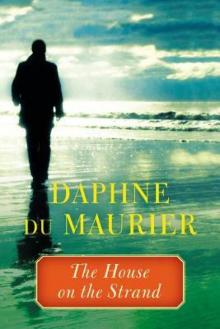 The House on the Strand
The House on the Strand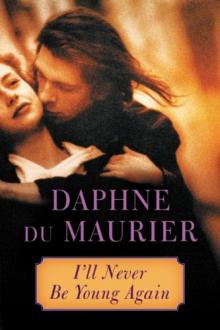 I'll Never Be Young Again
I'll Never Be Young Again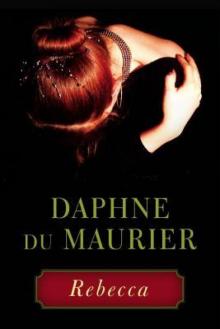 Rebecca
Rebecca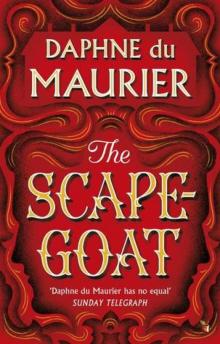 The Scapegoat
The Scapegoat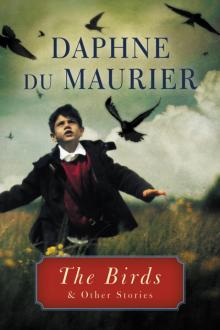 The Birds and Other Stories
The Birds and Other Stories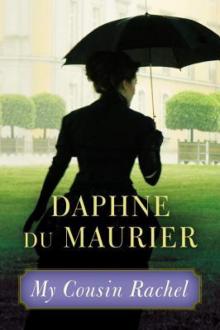 My Cousin Rachel
My Cousin Rachel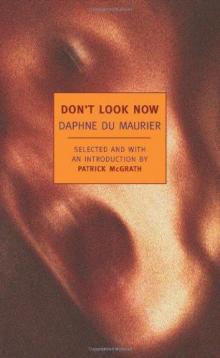 Don't Look Now
Don't Look Now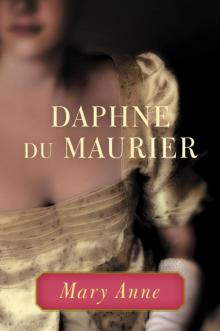 Mary Anne
Mary Anne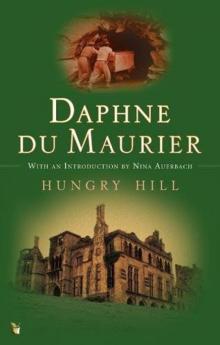 Hungry Hill
Hungry Hill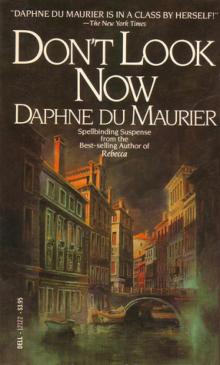 Don't Look Now and Other Stories
Don't Look Now and Other Stories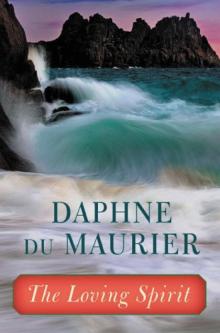 The Loving Spirit
The Loving Spirit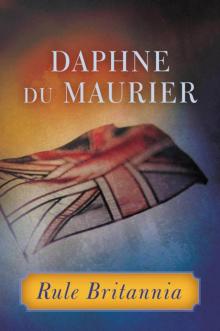 Rule Britannia
Rule Britannia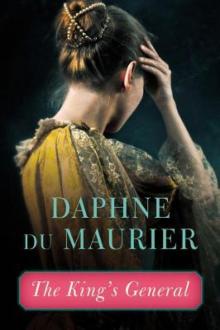 The King's General
The King's General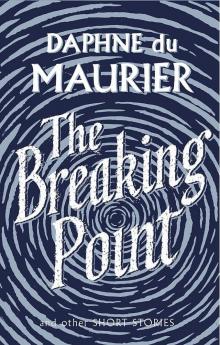 The Breaking Point: Short Stories
The Breaking Point: Short Stories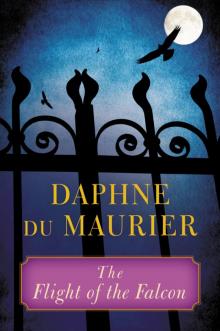 The Flight of the Falcon
The Flight of the Falcon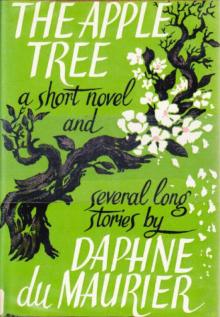 The Apple Tree: a short novel & several long stories
The Apple Tree: a short novel & several long stories The Breaking Point
The Breaking Point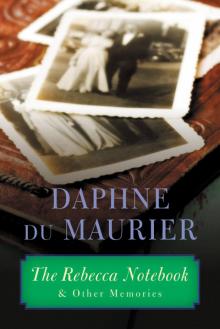 The Rebecca Notebook
The Rebecca Notebook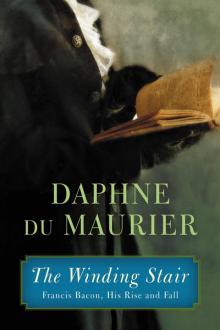 The Winding Stair: Francis Bacon, His Rise and Fall
The Winding Stair: Francis Bacon, His Rise and Fall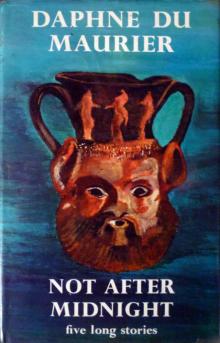 Not After Midnight & Other Stories
Not After Midnight & Other Stories The Doll
The Doll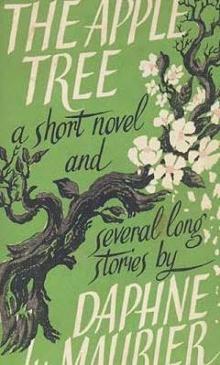 The Apple Tree
The Apple Tree